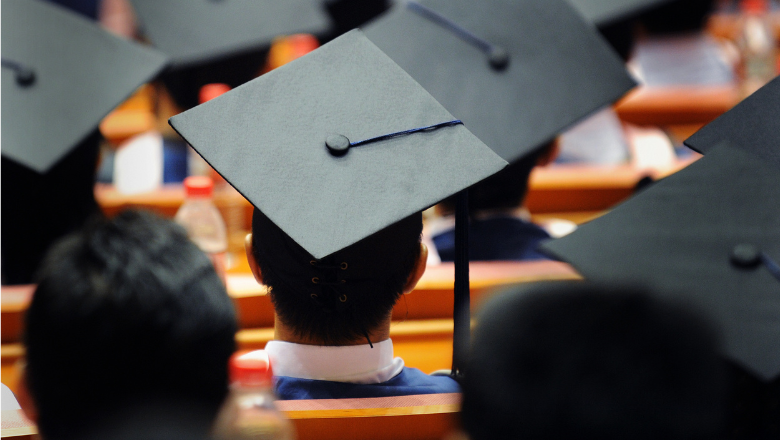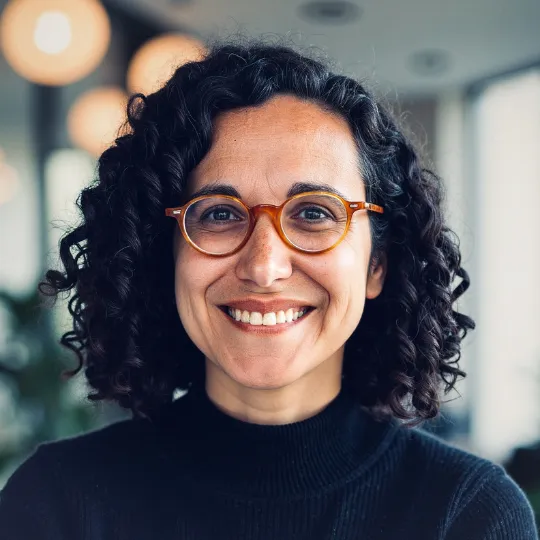As the world faces multiple threats including rising economic and social inequalities, closing of democratic spaces, and impending climate disaster, the need to think and act in radically new ways that break away from business-as-usual is more urgent than ever. The chapters in Decolonial Education and Youth Aspirations offer ideas and provocations on rethinking education by consciously break away from the neoliberal and colonial assumptions currently underpinning education. By drawing on decolonial praxis, we hope to inspire understandings that this is always an alternative.
Dr Sara Camacho Felix, Senior Lecturer in Global Cultures and Liberal Arts Education
19 February 2025
Education systems need to challenge capitalist and colonial roots, says new book
Challenging colonialism and neoliberalism in education systems is the route to re-imaging global structures, says a new book co-edited by Dr Sara Camacho Felix, Senior Lecturer in Global Cultures and Liberal Arts Education in the Department of Interdisciplinary Humanities.

Dr Camacho Felix and Nyashadzashe Mandivenga from the London School of Economics and Political Science (LSE) are co-editors of Decolonial Education and Youth Aspirations, an e-book released with the Global Policy Journal.
The book, which is inspired by Dr Camacho Felix’s research into decolonising education and her practice as a university educator, emphasises the need to recognise youth and students as “future-makers” with their own agency and power to illicit social change. It explores how existing educational systems – at all levels and in all geographies – instil neoliberal and colonial values in students in order to prepare them for participation in capitalist society. Instead, researchers propose alternative models that separate education from the goals of capitalism.
Chapters are being released on the Global Policy Journal blog over the next few months, beginning with the publication of the book’s introduction and Dr Camacho Felix’s chapter on ‘A Theory of Decolonial Imaginations’ on 11 February.
In her chapter, Dr Camacho Felix examines how coloniality and capitalism shape education in UK universities, ultimately limiting imagination. She suggests abandoning Euro-centric approaches in favour of the pluriverse, and champions mutual aid and its promotion of solidarity and community.
Universities, to be relevant and to speak to aspirations that youth hold for a better world, have to embrace this different way to imagine the world. We must rebuild these universities to operate in radically new ways.
Dr Sara Camacho Felix, Senior Lecturer in Global Cultures and Liberal Arts Education, quoted in ‘A Theory of Decolonial Imaginations’
Research by Dr Pavan Mano, Lecturer in Global Cultures in the Department of Interdisciplinary Humanities, also features in the volume, under the chapter ‘Against Mastery: Thinking in the shadow of neoliberal times’. He explores how conventional university curriculums can inhibit students from thinking more ambitiously through the use of academic essays.
The strength of the humanities lies in teaching students how to read and think carefully before forming their opinions. I would like to see more space afforded for students to grapple with what they read and have this recognized in their grades.
Dr Pavan Mano, Lecturer in Global Cultures
Other topics in the book include young people in the Roma community; indigenous forms of education; the experiences of disabled and Black students at universities in Nigeria and South Africa; community-oriented Ummah pedagogy; Black doctoral scholarships in UK academia; and decolonising the curriculum and pedagogy in Welsh higher education.


